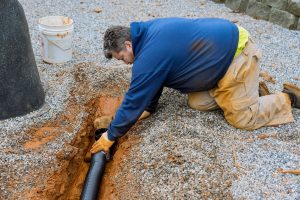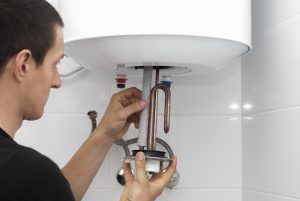Are you ready to get started on a plumbing project for your home? Or look for that plumbing job you've been thinking about? Planning a remodel can be an exciting process. Every plumbing project presents a chance to boost your quality of life while gaining a sense of accomplishment.
Before you get started, however, homeowners must acknowledge the importance of acquiring plumbing permits to gain approval for a project. Even if it seems your plan involves minor changes, you may still need to cut through a bunch of red tapes before starting.
Good thing we're here to explain why plumbing permits are a key part of every remodeling job and the reason cities need them. Here are some of the most important plumbing permit tips to keep in mind for your next project.
Does a Permit Protect Me?
 It might seem like a nuisance at first, but plumbing permits might begin to make sense once you realize they're designed to protect homeowners.
It might seem like a nuisance at first, but plumbing permits might begin to make sense once you realize they're designed to protect homeowners.
First of all, pulling permits will put you on good terms with reviewers and inspectors from whom you may need to get approval for different stages of your plan to ensure you're complying with local plumbing codes and zoning laws.
Plumbing permits can be used as proof of compliance with sanitary and safety concerns. This may include potential issues with property lines and adjacent structures. Homeowners who are without the proper permits may be penalized via a fine. There may also be complications if you try to sell your home. Perhaps most importantly, by not carrying a permit you may unknowingly go ahead with a project without any assurance it meets code, a minimum safety requirement.
When Do You Need a Permit?
 More often than not it depends on the size of the project. If you're performing a relatively simple task such as replacing a toilet, there's no need to apply for a permit. When it comes to projects that include making changes to your home's plumbing system, it's likely you need to get a permit.
More often than not it depends on the size of the project. If you're performing a relatively simple task such as replacing a toilet, there's no need to apply for a permit. When it comes to projects that include making changes to your home's plumbing system, it's likely you need to get a permit.
Common projects that typically require a permit include repiping, drain line replacements, sewer line replacements, water heater installations and anything to do with relocating plumbing.
Another thing you should know is permit requirements may be different in each city. Some make permits necessary for certain jobs while others do not. It's best to check with Livonia, MI municipal offices before proceeding.
How Much Does a Permit Cost?
 Different cities have different fees depending on the nature of the project and type of building you're working on. Local governments usually charge between tens and hundreds of dollars.
Different cities have different fees depending on the nature of the project and type of building you're working on. Local governments usually charge between tens and hundreds of dollars.
Some may change the price depending on how many fixtures you plan to install while others offer packages, which charge more for installing items beyond the threshold.
Certain cities may even charge an application fee. If you ever feel lost or need a hand with permits, you can always ask a Livonia plumber




